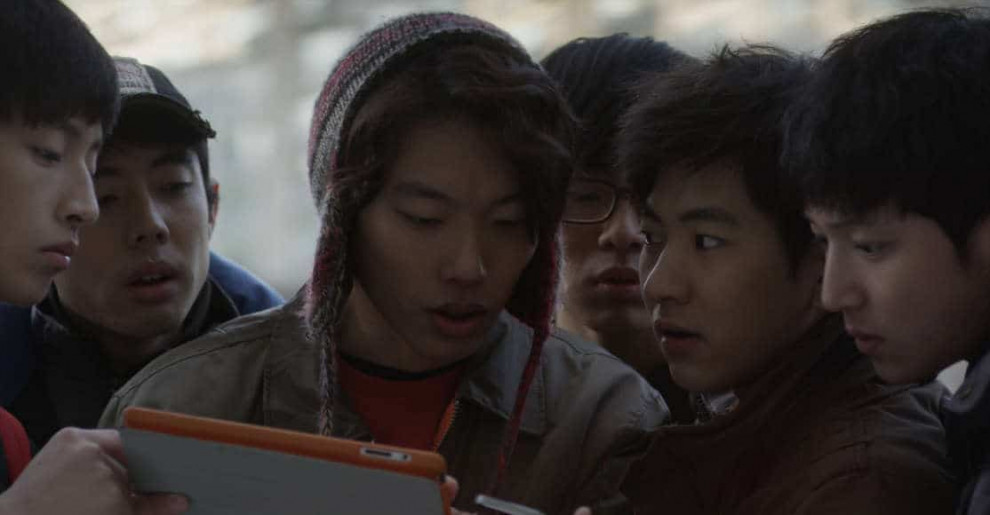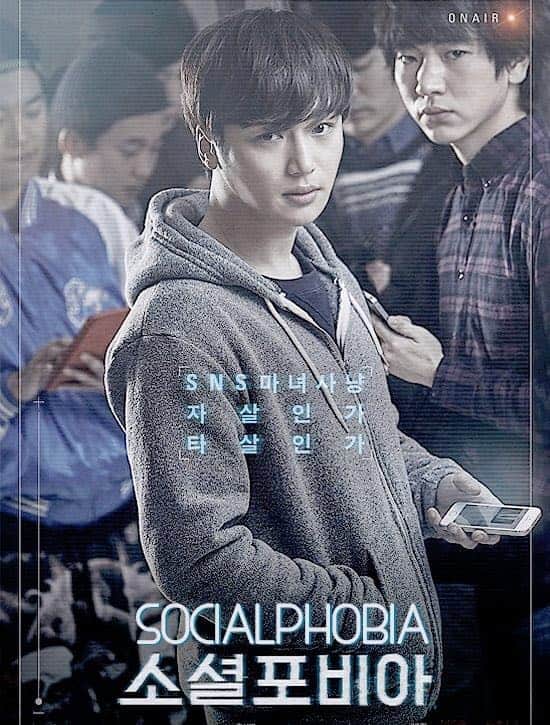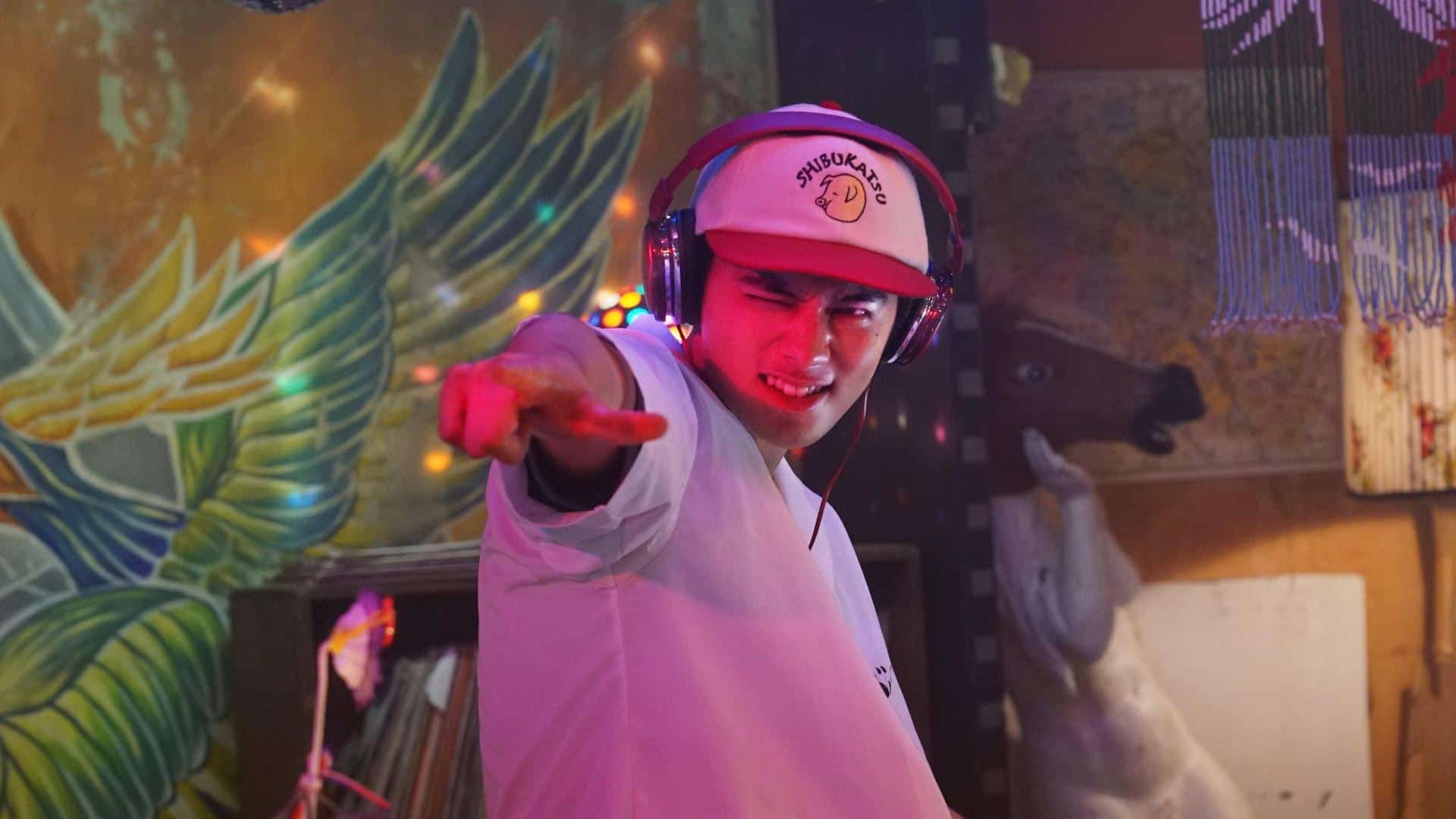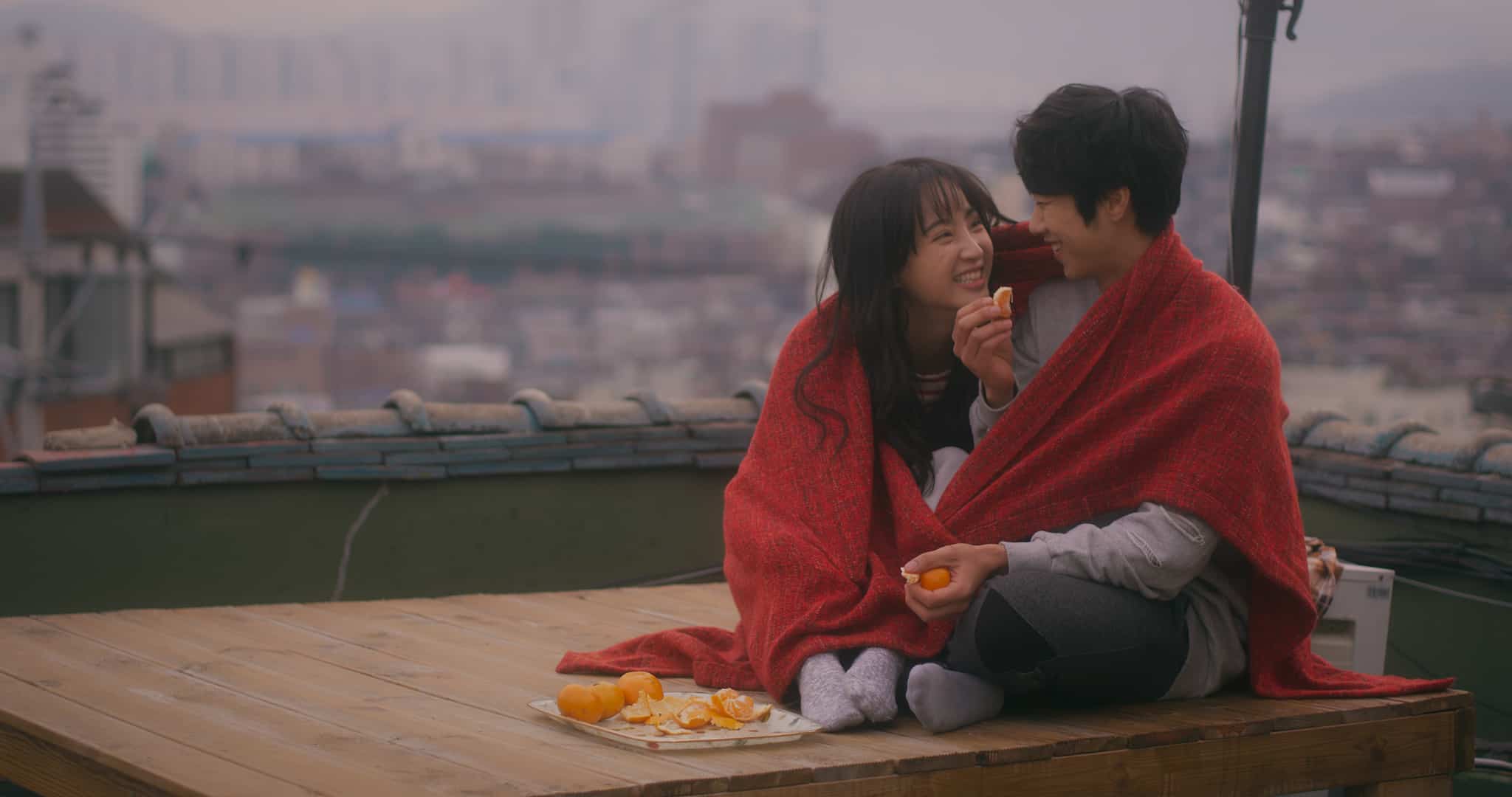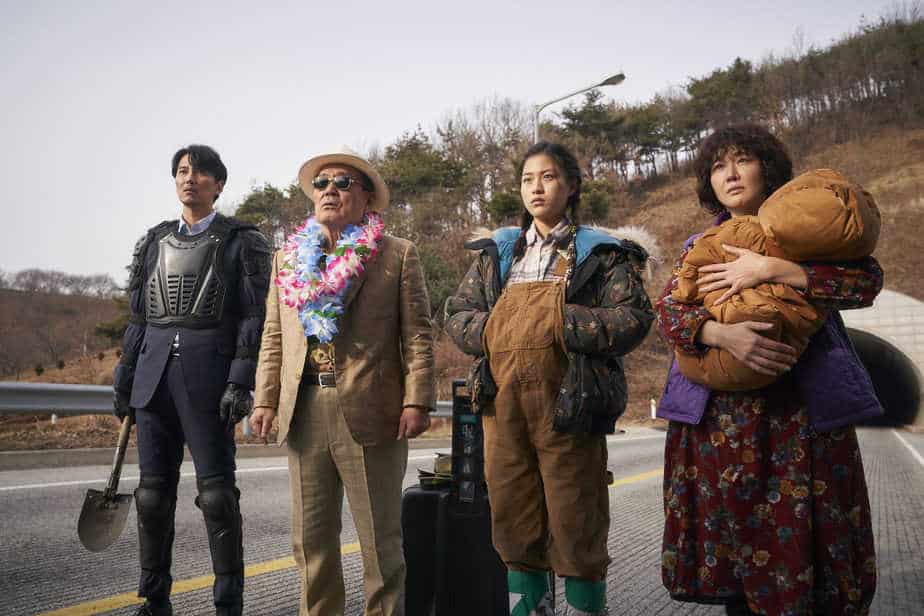When “Socialphobia” first premiered at the (19th) Busan International Film Festival, it expeditiously began to receive praise for its truthful, rather raw commentary on the overwhelming negatives of social media, such as their role in relentless witch-hunts on those who pose behind anonymous, or public profiles. Utilizing a youthful, fresh-faced cast to carry a narrative which befits the technologically inclined generations, it is a tangibly morbid movie which remains just as provoking as when first screened in 2014. In fact, one could conceivably contend its overriding examination on the defects of unrestricted social networking is as poignant now as it ever was.
Buy This Title
Following a news soundbite delivered over shots of bustling streets in which we are made privy to the information that Sergeant Park, an army deserter, has committed suicide, the camera cuts to a group of friends sitting around discussing the report. Particularly, they are scrutinising the behaviour of a teenage female Twitter user, who is posting derogatory comments regarding the deceased military man. As a result of this, Ha Yong-min (Lee Joo-seung) takes it upon himself to “flame” the disrespectful netizen, berating her with venomous messages and encouraging his close-friend Ji-woong (Byun Yo-han) to follow suit. The following day, they both travel to an Internet cafe to connect with streamer Yang-ge A.K.A Mr. Babble (Ryu Jun-yeol), who has organised a small-scale witch-hunt alongside other aggravated forum frequenters. Aiming to encounter the orchestrator of the hate comments at her apartment upon finding her address, the scarce ensemble documents their travels on the way through Mr. Babble's livestream, evidently caught up in their attention-seeking moral compasses.
However, upon arriving at their desired destination, the group find something peculiar. Their target's door is left wide-open, and no sound can be heard from inside. Shaken, yet consumed by his pseudo-obligation to provide content for the record number of viewers on his stream, Yang-ge enters first, camera firmly in tow. Momentarily after, and following some astonished yelping, the rest of the gang hurtle into the room, only to discover their scapegoat hanging from the roof. Succeeding this comes confirmation of her death, police questioning (which scuppers Yong-min and Ji-woong's personal chances of entering the force) and the focus shifted onto the apparent justice seekers, who had clumsily continued to chronicle the previous night's events.
Promptly, although unsurprisingly, the idealistic Yang-ge sees opportunity amidst this distress. Simultaneously vexed by the suspicious sight of the door being left wide open and unable to accept his share of responsibility for Ha-young's death, he begins to craft a conspiracy. Supplemented by a resilient Yong-min, who sees a chance to materialise his ambition to still end up a part of the police, he recalls that laundry sounds can be heard throughout their broadcast in the apartment, and it is dually noted that a suicidal person is unlikely to wish to do their washing. Ergo, soon, the witch-hunters are out to investigate a suspected homicide, away from the police conclusions of suicide. Exploiting the naivety of many internet users through a newly created justice forum, their contrived theory starts to gain traction, and thus, their self-investigation builds swift momentum.
Unfortunately, the murder-mystery aspect of the plot's concept is where the story falls most flat. Although consistently intriguing, with a sufficient amount of plot-twists and slowly unravelling connections to the late Ha-young revealed, it all feels overly callow. Of course, there must be some element of hot-headed youthfulness given the age of the ensemble, but these teenagers seem resolutely immune to learning from prior mistakes. For example, their unfaltering brazenness in publicly accusing the rich CEO Jang Se-min (Jeon Shin-hwan) should serve as a pronounced warning signal, but instead seems to drive the youngsters to further continue the mission for their perceived truth. On the contrary, there is Ji-woong, a mildly precocious character who deviates from those he associates with as well as their ham-fisted attempts at achieving uprightness, instead favouring a calculated, measured approach which only wavers when the hand of juvenile temptation is played. By virtue of adding such a personality into the circle of acquaintances, it saves “Socialphobia” from constructing a one-dimensional frenzy of pubescent alpha-males.
Bearing all that in mind, where the movie thrives most is in its frank dissection of modern societal issues pertaining to the overuse of the unregulated forums, social networking sites and online communities which dominate everyday lives. Even the aforementioned Ji-woong, who has given up his mobile to concentrate on his studies, is eventually drawn into the encompassing black-hole of SNS temptation, swiftly is steered by desperate ulterior motives to clear his name. Each character presented shows a different aspect of the forlorn adolescents which roam the streets glued to their phones, constantly attaching themselves onto scandals which they would otherwise not be involved in. Most notably, the enthusiastic internet-savvy Yang-ge, who lives and breathes his persona of Mr. Babble. Throughout his screen time he is a propagator of gossip; a disenfranchised, gauche young adult who searches for acceptance in internet tittle-tattle and avoidable confrontations. Excellently portrayed by Ryu Jun-yeol, who made his big-screen debut here, the subtleties of the buoyant, loudmouthed Yang-me are relentlessly on show.
Similarly, on the opposite side of the spectrum to the hyper-charged live-streamer, Lee Je-seong gives a flawless performance as Yong-min. Left to his own devices with his family residing stateside, he is a vulnerable student who relies on internet cafe chatrooms and his mobile phone to acquire widespread acceptance from peers. Moreover, Yong-min is a teen wholeheartedly consumed by conspicuous rumours and verbally assaulting others online, which aids Je-seong in carving a marginally sympathetic performance. On one hand, the social outcast is irredeemable, Lee's facial expressions telling the story of a mere child who cannot recognize errors made and will freely continue to operate as he always has. On the other hand, though, he is a pitiful victim; mystified by the damage done to him online, and out for answers on how he became so lamentable, something which only leads to psychological damage, the type of which there is no getting out of. Accordingly, Lee Je-seong captures this duality seamlessly, leaving the morally grey character lingering in one's thoughts.
Continuing, one must also acknowledge the competency of cinematographer Lee Sung-joong. Throughout “Socialphobia”, Lee looks towards the rawness of actions such as witch-hunts, carefully selecting locations from claustrophobic Internet cafe booths to the muggy, grimy smoke-filled rooftops. Suitably, there is no gloss presented, instead fixating on absences of necessities like light, moulding scenes which are predominantly shadowy, or at the very least unilluminated. In a similar vein, there is an understated cleverness to just how shaky and ungainly Mr. Babble's live streams are depicted. Far from just an average glimpse at inexperienced camera work, his footage lags, shudders, swings and everything in-between, illustrating a sincere amount of immature ineptitude which, given how the man goes about his business, is aptly befitting.
To conclude, it is somewhat difficult to reap enjoyment from a film like “Socialphobia,” a two-hour presentation which crafts a bleak reflection of the inherently nugatory, valueless rungs of society. Shown here are the type of people who thrive on self-persecuting those encountered as mere online personas over differing opinions, or for the sake of their personal sense of moral supremacy to be proven unremittingly correct. Simply put, these young men only consider themselves, and subsequently their ego-boosting supporters, as those who are righteous. Therefore, this is a movie unfiltered in its desolate commentary on the poisonous aspects of the internet and must be consumed attentively.


